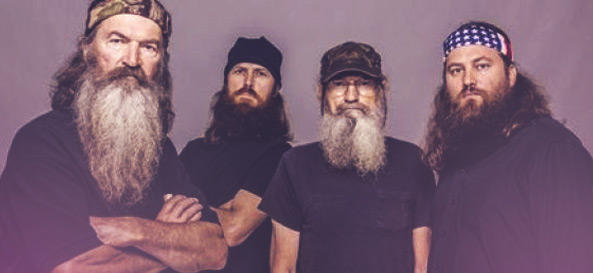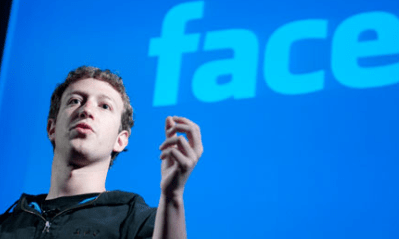
It seems Duck Dynasty is a pop culture dichotomy.
On one hand, it’s achieved an unprecedented level of mainstream success by becoming one of the most popular TV programs in America. The season four premier of the A&E “guided” reality show became the most-watched unscripted show in cable television history. After bringing in almost 12 million viewers (nearly double the number who tuned in to see Breaking Bad), entertainment industry experts said it was only a matter of time before the show about a good-natured family of southern hunting moguls would become the most popular cable show in any genre.
On the other hand, it’s become a symbol the mindless reality TV culture that has overtaken modern entertainment. Here are a few actual responses we at RELEVANT received after posting the news about Duck Dynasty’s success: “Why I’m getting rid of cable”; “Sorry. I just don’t get it”; “I hate this country.”
Earlier this summer, a PBS station in New York lampooned prime-time staples like Duck Dynasty and its reality brethren by creating posters for made up shows, with titles like The Dillionaire: Life’s a Pickle, Bag Boys: Clean Up on Every Aisle and Clam Kings (a faux-show about rival clam diggers). Along with the satirical posters, the ads carried this line: “The fact you thought this was a real show says a lot about the state of TV.”
It’s the same dismissive tone that leads Twitter users to disavow their national allegiance after learning about the popularity of a show like Duck Dynasty.
For those still unacquainted with the exploits of the heavily-bearded Robertson family, their half-hour docu-sitcom follows a pretty simple premise: Each week, viewers get a peak into the lives of the family duck hunting business, Duck Commander, founded by 67-year-old family patriarch Phil Robertson, and now run by his adult sons and catch-phrase prone brother Si. We also get to meet the rest of the Robertson gang, including the boys’ mother, affectionately referred to as “Miss Kay,” the grandchildren and the Robertson wives as they balance work, family, faith and their own brand of hillbilly hijinks.
And though the show’s premise sounds like typical reality TV fare, beyond its stylistic similarities, the series shares very little else with recent reality favorites like Jersey Shore, Keeping Up with the Kardashians or anything that the Real Housewives franchise has to offer.
Unlike American Chopper knockoffs, there is almost no fighting among family members. Typical reality TV tropes like heavy drinking, swearing, promiscuity and run-ins with the law are also notably absent.
Instead, the Robertson’s close-knit family relationship, outspoken Christian faith and traditional values are the cornerstone of the show’s dynamics. Each episode features down-home nuggets of wisdom (like this from Phil: “Find you a meek, gentle, kind-spirited country girl. If she knows how to cook and carries her Bible and lives by it and she loves to eat bullfrogs, there’s a woman”), Bible verse references, prayers around the dinner table and genuinely sincere family affection.
Along with Duck Dynasty’s starkly wholesome tone, it’s also surprisingly self-aware. Unlike other reality “celebrities”, who take their fame, appearance and “talent” extremely seriously, the members of the Robertson family seem unaffected by their newfound cultural ubiquity. The cast members seem to totally understand that the entire premise of the show is sort of ridiculous and acknowledge that they’re just along for the ride.
In their free time, Robertson kin are regular fixtures at church events and Christian conferences—not nightclub openings, rehab centers or in the pages of gossip magazines. They’re motivated by faith, not fame and fortune.
Though it follows the reality TV formula, in many ways, Duck Dynasty is the anti-reality show: It’s light-hearted, conflict-free and doesn’t ask its viewers to believe they are watching anything more serious than they actually are. The featured family members know their show is relativity mindless—but they also realize it’s wildly entertaining. Duck Dynasty is carefree escapism in its purist form.
Duck Dynasty has become America’s most popular show—not because it’s salacious, dramatic or provocative. It’s become so popular because it’s decidedly not any of those things. Sure, the main characters with their burly beards, quotable one-liners and Southern charm have their eccentricities, but the show isn’t successful because of what viewers can’t relate to; it’s popular because it’s so relatable. Most people know what it’s like to joke around with family members, pray before a meal and goof off with co-workers—we relate to what we’re seeing with the Robertsons.
Duck Dynasty maybe the kind of “low culture” specimen that PBS makes fun of and TV critics look down on, but it’s a barometer for our collective, mass media taste. Despite what politicians suggests, values are not decided at the ballot box. Americans vote for what they value each week by choosing what they watch on TV. And right now, a Bible-quoting family of hunters is who we’ve put into office as the chief representatives of our worldview.
Fans of critically praised, “high-culture” dramas like Breaking Bad may look down on reality shows like Duck Dynasty, but without seeing where we are as a culture, we lose context for what makes shows like Breaking Bad so good in the first place.
People like watching the slow moral decay of Walter White because it’s interesting, complicated and compelling—in other words, it’s nothing like their day-to-day lives. Most viewers will never resort to selling drugs, killing a rival or leading a double-life. We’re attracted to anti-heroes like Tony Soprano, Don Draper and White because of the fact we can’t relate to them. Their sensationalized darkness is just a symbol for the much smaller, real life problems of viewers.
But, if we lose touch with our cultural values—like the ones represented weekly on Duck Dynasty—the moral flaws of TV’s great tragic heroes lose their impact. In a way, Breaking Bad needs Duck Dynasty.
Breaking Bad helps provide a template for what we can ascribe to culturally (morally complex, thoughtful, quality-focused works of art), but Duck Dynasty shows us where we actually are as a collective culture by showcasing the values that make popular shows connect with mainstream audiences. Without both “high culture” that challenges our worldview and “low culture” that reflects it, you lose context for both.






















